The partner of WikiLeaks founder Julian Assange has spoken of her “huge disappointment” as hopes for his freedom were dashed despite a decision to block his extradition to the United States.
On Wednesday, Assange had applied for bail on strict conditions so he could be reunited with Stella Moris and their two young sons.
But Judge Vanessa Baraitser refused to release the 49-year-old over fears he would abscond.
It follows her decision on Monday that he should not be extradited to the US on mental health grounds due to the risk of suicide.
Assange will have to remain at Belmarsh jail while the US government appeals against the extradition ruling.
Speaking outside Westminster Magistrates’ Court, Ms Moris said: “This is a huge disappointment. Julian should not be in Belmarsh prison in the first place.”
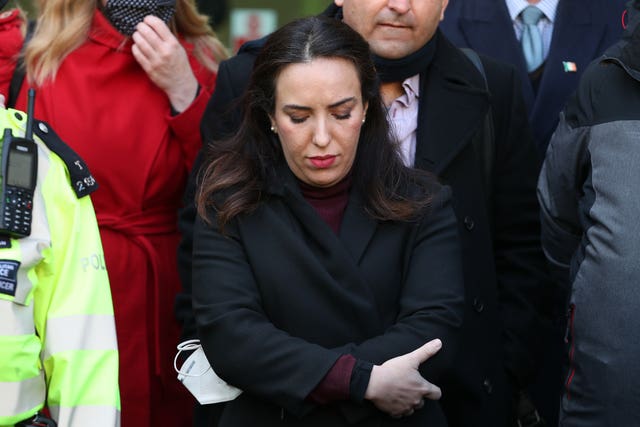
“I urge the (US) Department of Justice to drop the charges and the president of the United States to pardon Julian.”
WikiLeaks editor-in-chief Kristinn Hrafnsson said the decision to refuse bail would be appealed.
He said: “We think it is unjust and unfair, and illogical when you consider her (the judge’s) ruling two days ago about Julian’s health, which of course is caused a large part because he is being held in Belmarsh prison.
“To send him back there doesn’t make any sense.
“This denial of bail will, in most likelihood, be appealed to the High Court within hours or a few days and we expect this to be overturned, because frankly it doesn’t make any sense from any point of view.”
He added: “If the opposition will appeal, they will be met. We will still want the President of the United States, both the one soon leaving office and the one coming in, to consider a pardon. We want this to end, but we are confident that justice will prevail.”
Announcing her bail decision earlier, Judge Baraitser said: “As a matter of fairness, the US must be allowed to challenge my decision, and if Mr Assange absconds during this process they will lose the opportunity to do so.
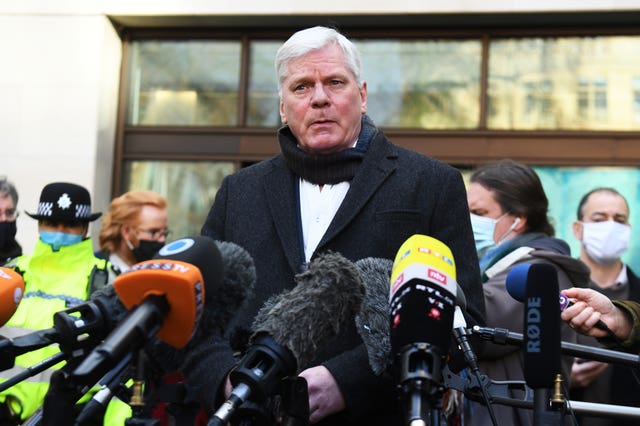
“Mr Assange still has a huge support network available to him should he again choose to go to ground.”
On fears of Covid-19 spreading in Belmarsh prison, the judge added that the latest information demonstrated the facility was managing the health of inmates.
Judge Baraitser had reached her decision after hearing argument from Assange’s legal team for conditional bail amounting to an effective “house arrest”, which was opposed by the US government.
Ed Fitzgerald QC, for Assange, told Judge Baraitser: “In essence, we say, your decision changes everything and it certainly changes any motive to abscond rather than to continue to pursue his remedies within this country and with confidence in the due process in this country.
“‘I discharge you from this extradition request’ should mean he should at least regain his conditional liberty.”
The lawyer said Assange wished for a “sheltered life” with his family, adding it would be his first opportunity to live with his young children since he took up residence at the Ecuadorian embassy.
A “significant number of responsible people” had offered “substantial sums” of money as surety for Assange, the court heard.
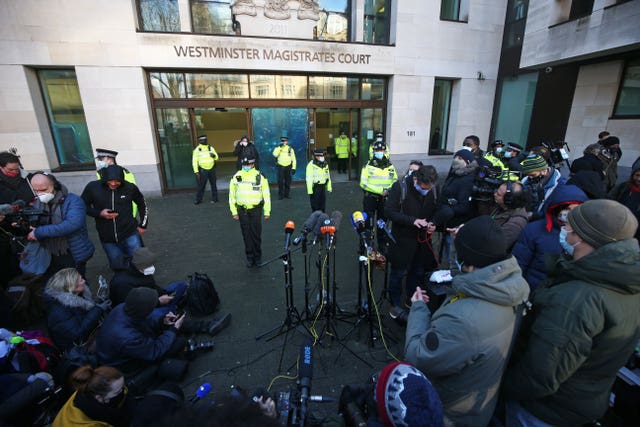
Mr Fitzgerald argued: “He can be put under house arrest but at least he will finally regain his liberty and be able to have the benefit of the long-awaited decision of this court.”
But Clair Dobbin, for the US government, said that Assange had “shown himself as capable of going to extraordinary lengths to avoid extradition”.
Ms Dobbin told the court the history of Assange’s case demonstrated that he “regards himself as above the law and no cost is too great, whether that cost be to himself or others”.
“Given Mr Assange’s conduct, there is no surety that would secure his attendance,” she said.
Assange has been held in Belmarsh high security jail since he was carried out of the Ecuadorian embassy in London by police before being arrested for breaching his bail conditions in April 2019.
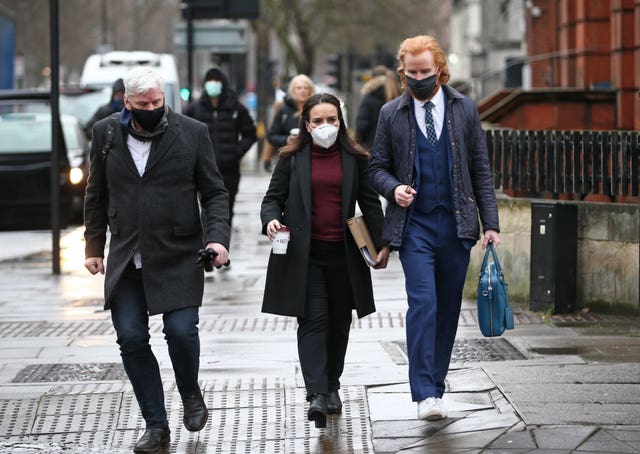
He had entered the embassy in 2012 after exhausting all legal avenues to avoid extradition to Sweden to face sex offence allegations, which he has always denied and were eventually dropped.
Assange is still wanted in the US on an 18-count indictment, alleging a plot to hack computers and a conspiracy to obtain and disclose national defence information.
The prosecution followed WikiLeaks’ publication of hundreds of thousands of leaked documents in 2010 and 2011 relating to the Afghanistan and Iraq wars, as well as diplomatic cables.
Prosecutors say Assange helped US defence analyst Chelsea Manning breach the Espionage Act in unlawfully obtaining material, was complicit in hacking by others, and published classified information that put the lives of US informants in danger.
Assange denies plotting with Ms Manning to crack an encrypted password on US Department of Defence computers and says there is no evidence that anyone’s safety was put at risk.
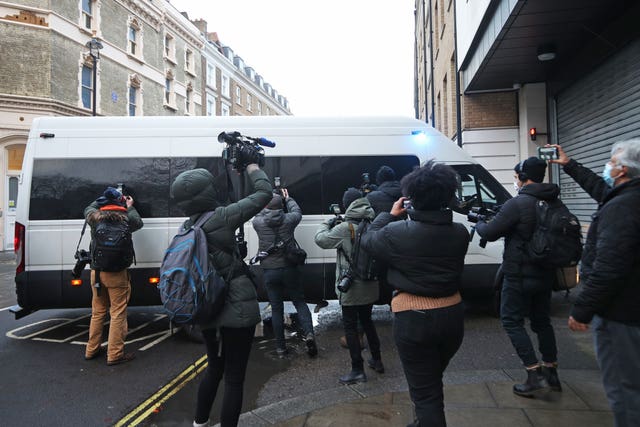
His defence legal team argued that the US prosecution is political and said Assange, who has been diagnosed with Asperger’s syndrome and severe depression, is a high suicide risk if he is extradited.
Judge Baraitser rejected the argument that US prosecutors were under pressure from the Donald Trump administration.
She said Assange’s dealings with Ms Manning “went beyond the mere encouragement of a journalist” and that he was “well aware” of the danger to informants by disclosing unredacted names in leaked documents.
But she said: “Faced with the conditions of near total isolation without the protective factors which limited his risk at HMP Belmarsh, I am satisfied the procedures described by the US will not prevent Mr Assange from finding a way to commit suicide and for this reason I have decided extradition would be oppressive by reason of mental health and I order his discharge.”





Comments: Our rules
We want our comments to be a lively and valuable part of our community - a place where readers can debate and engage with the most important local issues. The ability to comment on our stories is a privilege, not a right, however, and that privilege may be withdrawn if it is abused or misused.
Please report any comments that break our rules.
Read the rules hereComments are closed on this article